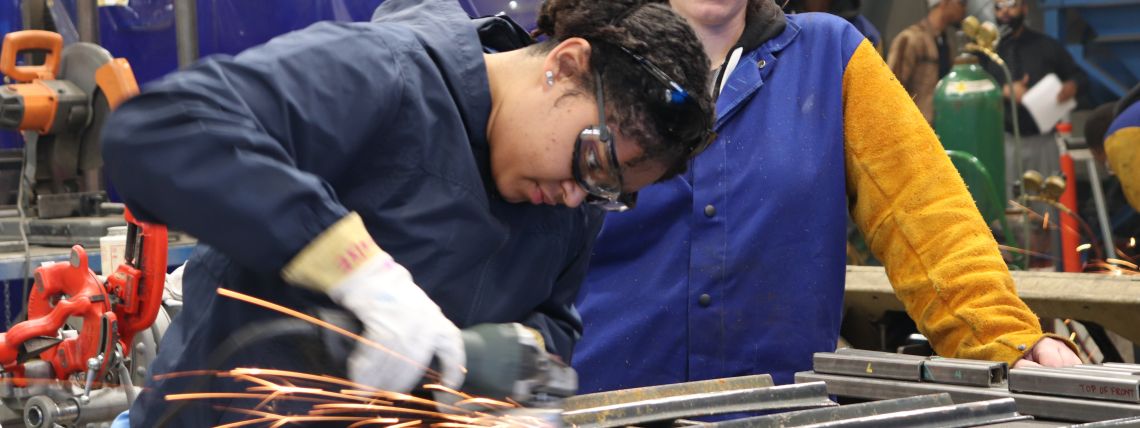Cooperation with employers should be strengthened in mechanical engineering and production technology VET

FINEEC recently carried out an evaluation of vocational competence in the mechanical engineering and production technology sector. The evaluation found that students have strong basic vocational competence, but room for improvement in their mathematical competence and working life skills. There is also room for improvement in cooperation between employers and educational institutions. The sector also has a high student drop-out rate.
The Finnish Education Evaluation Centre (FINEEC) recently carried out an evaluation of the competence produced by the vocational qualification in mechanical engineering and production and the further and specialist vocational qualifications in production technology and the pedagogical activities of vocational education and training (VET) providers. The evaluation included all VET providers offering these qualifications and involved examining the completed study units and competence of approximately 8,400 students.
Employer involvement in competence demonstrations should be increased
In the context of all three qualifications, there is room for improvement in the cooperation between VET providers and employers as regards workplace education and training and especially as regards competence demonstrations. Even though competence demonstrations should primarily be carried out at workplaces, with an employer representative participating in their assessment, the majority of the competence demonstrations of the vocational qualification and just over a third of the competence demonstrations of the further and specialist vocational qualifications were carried out at educational institutions. Furthermore, the majority of the competence demonstrations of the vocational qualification and approximately a third of the competence demonstrations of the further and specialist vocational qualification were assessed without an employer representative.
Competence demonstration in mechanical engineering and production technology VET should be developed so that carrying them out in cooperation with employers becomes more common. It is important for VET providers to identify, on the one hand, situations where it is not possible to carry out a competence demonstration with an employer and, on the other hand, situations where competence demonstrations that could have been carried out with employers are instead carried out at educational institutions due to the VET provider's established practices or the insufficient employer networks of teaching staff, for example, says Counsellor of Evaluation Paula Kilpeläinen.
Teachers' working life skills need to be strengthened through closer cooperation with workplaces
The need to strengthen cooperation with employers is also reflected in the competence of teachers. In order for VET providers to be able to provide high-quality and employer-oriented VET, it is important for the working life skills of their teaching and guidance staff to be up to date. Teachers need stronger subject matter competence and wider employer networks.
Keeping up to date with the needs of employers and changes in the operating environment requires teachers to continuously update their competence. Active and regular cooperation between teachers and employers is a tried and tested way of maintaining and developing the working life skills of teachers. VET providers should therefore facilitate and encourage teachers to engage in cooperation and network with workplaces in the sector, says Senior Evaluation Advisor Raisa Hievanen.
Room for improvement in mathematical competence and working life skills
The strengths of mechanical engineering and production technology students include basic vocational competence, such as the use of the essential machinery, equipment and tools of the sector, and occupational safety competence. However, there is room for improvement in students’ mathematical competence and also in the working life skills of vocational qualification graduates. Jobs and postgraduate studies in the sector require mathematical competence, so these skills need to be strengthened. Also in need of strengthening are the working life skills produced by the studies, as they are key skills for both finding employment and job performance.
Dropping out is common – guidance and support must be invested in
Dropping out is common among vocational qualification in mechanical engineering and production technology and further vocational qualification in production technology students. Of the students who started studying for the vocational qualification in 2021, only approximately half graduated within the target time of three years. The graduation rate of the further vocational qualification was even lower: only 45% graduated in the target time of two years. In both qualifications, a quarter of students dropped out of VET entirely. Educational institutions should invest in student guidance and support so that more students graduate or at least transfer to other studies instead of dropping out entirely.
FINEEC will publish the results of the evaluation on 9 October 2025. The publication webinar offers VET providers, teachers and employer representatives an opportunity to engage in peer learning and the sharing of good practices.
Report:
Professional competence and pedagogical activities in the vocational qualification in mechanical engineering and production technology and the further and specialist vocational qualifications in production technology. Publications 9:2025. The Finnish Education Evaluation Centre.
Additional information

Paula Kilpeläinen

